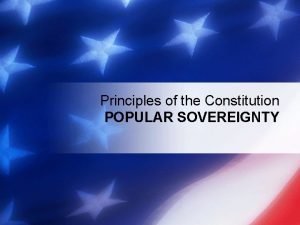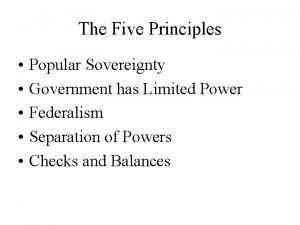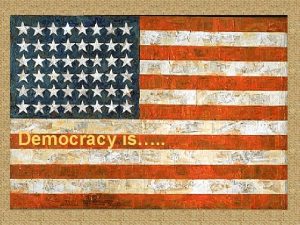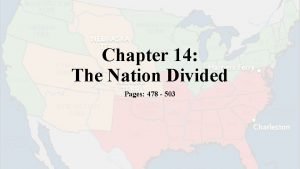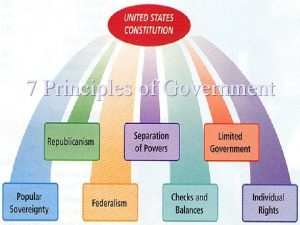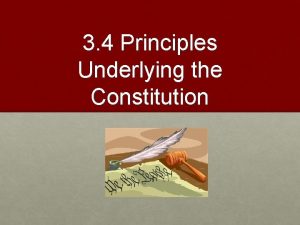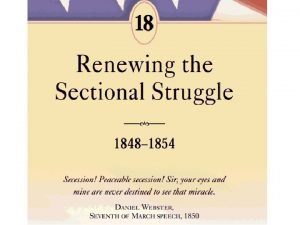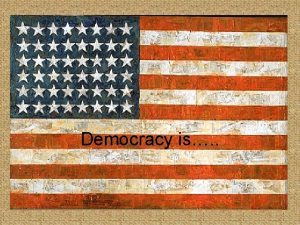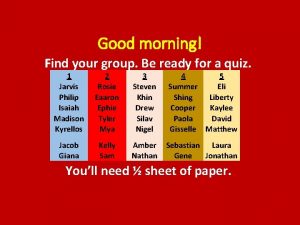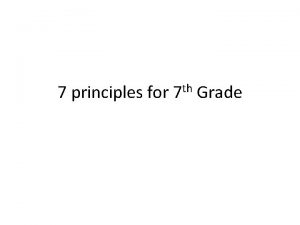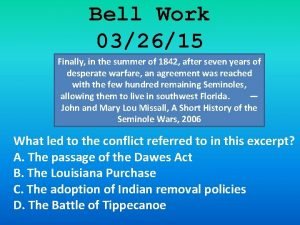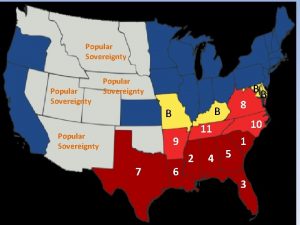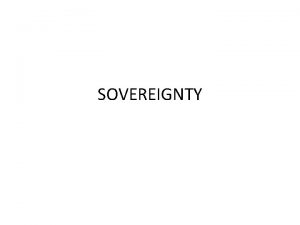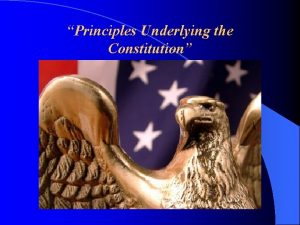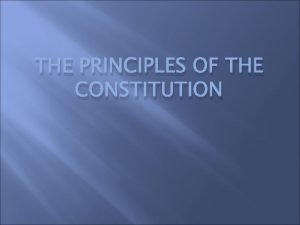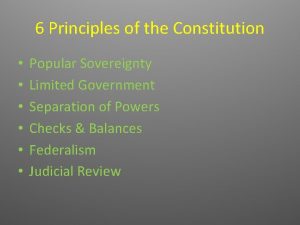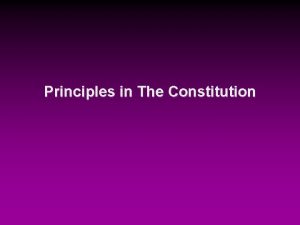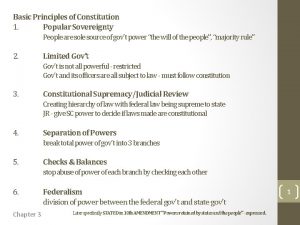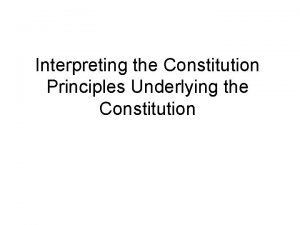Principles of the Constitution Underlying Principles Popular Sovereignty












- Slides: 12

Principles of the Constitution

Underlying Principles • Popular Sovereignty– the people rule and have the final say • Limited Government– founders wanted strong central gov. but feared misuse of power • Federalism– division of power between States and Federal govs.

The Three Branches • Checks and Balances– system where one branch of gov is controlled by other 2, prevents too much power in one area

• Legislative Branch– • makes the laws and control spending (appropriation) • Made up of Congress– House of Representatives and Senate • Can ratify treaties, approve presidential appointments, impeach the president, override pres veto, approve judges • Committees within each house, can pass, kill or pigeonhole bills

• House of Reps– more pop in state= more reps, serve 2 yrs, must be 25 yrs old, 435 members • Senate– all states get 2 votes (Senators), serve 6 yrs, must be 30 yrs old, 100 members

• Judicial Branch: • Judge the fairness of laws • District courts- lowest, 94 in country • Appeals courts- losers in district can appeal, 13 in country • Supreme Court- one chief justice and 8 others, highest court, hear cases of national importance, judicial review– decide if laws are constitutional

• Executive Branch: • Enforce laws • Pres, VP, and cabinet– 14 offices • Can issue executive orders, pardon, appoint judges and positions, veto laws • Pres has to be 35, born in US, been living here past 14 yrs

• President has many roles: • Chief Executive— carry out laws • Chief Diplomat— deal with foreign policy • Commander In Chief— in charge of military, war-must have approval from Congress • Chief of State— representative of all people

Federalism • Federalism– division of power between states and federal government • Federal or Enumerated Powers: trade between states, print $, declare war, deal with other countries, postal service

• State or Reserved Powers: local govs, schools, trade within borders, public safety • States can’t make laws that go against Federal Gov

• Shared or Concurrent Powers: roads, taxes, courts, public welfare, borrow $ • If conflicts arise, Constitution is supreme law of the land

 Principle of popular sovereignty
Principle of popular sovereignty Popular sovereignty
Popular sovereignty Lesson 1 principles of the constitution
Lesson 1 principles of the constitution Political cartoon democracy
Political cartoon democracy 503 divided by 3
503 divided by 3 What are the 7 principles of government
What are the 7 principles of government Whats popular sovereignty
Whats popular sovereignty Popular sovereignty
Popular sovereignty Popular sovereignty
Popular sovereignty Representative democracy political cartoon
Representative democracy political cartoon Popular sovereignty image
Popular sovereignty image Popular sovereignty definition
Popular sovereignty definition Popular sovereignty
Popular sovereignty
